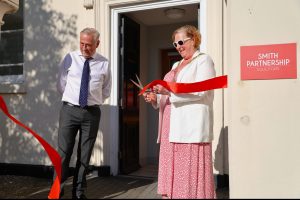Inflation falls to 15-month low

LOWER gas and electricity bills have helped inflation fall to its lowest level for 15-months, latest figures show.
Data released by the Office for National Statistics shows the consumer prices index (CPI) fell 0.2% in February to 3.4% – it is now at its lowest since November 2010.
The fall is slightly above predictions of 3.3% but the drop will be welcome news to the Chancellor ahead of tomorrow’s Budget.
The ONS said changes in recreation and culture spending; together with transport costs had also had a downward impact on the inflation level.
However, the decline was challenged due to upward pressure from the rising costs of alcohol off-sales and vegetables.
The retail price index also fell by 0.2% in February to 3.7%. The ONS said the index had benefited from lower motoring expenditure.
Despite the fall, analysts believe the next few months could heap pressure on the indices due to escalating fuel and food costs.
The inflation figures are one of the last major pieces of economic data to be published before the Budget tomorrow.
Follow the Budget at TheBusinessDesk.com with a live blog from midday tomorrow. Subscribers will receive an email carrying the headlines from the Budget within minutes of Mr Osborne’s speech and there will be comprehensive round-up, and reaction to what he had to say, in a second email later in the afternoon.
If you’re not getting our daily emails, your competitors might be. Click here to check your account settings.
Birmingham Chamber of Commerce Group welcomed the drop in CPI inflation.
President Michael Ward said: “Business concerns about competition from overseas have long since been replaced by inflation worries, but inflation figures are going in the right direction.”
He has urged the Bank of England’s Monetary Policy Committee not to rock the economic boat by raising interest rates but did say it should consider extending the quantitative easing programme to cover the purchase of corporate bonds rather than gilts.
“SMEs are missing out and not seeing the full impact of quantitative easing (QE) while it is limited to gilt buying,” he added.
Mike Ashton, of the West Midlands Chambers of Commerce, said: “Currently, with interest rates so low, there is little the MPC can do to stimulate the economy other than to expand its QE programme.
“The fall in inflation is attributed to energy cuts by some of the main utilities, as well as heavy discounting from non-food retailers. Business is still suffering from the impact of the Eurozone crisis and weak domestic demand.”









